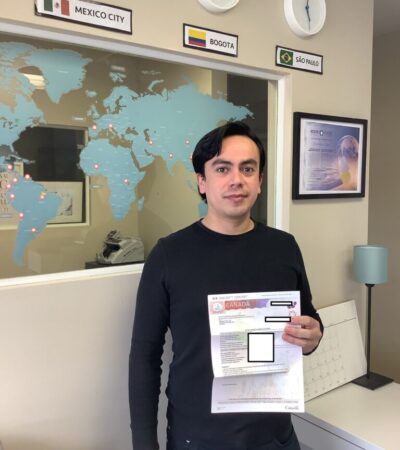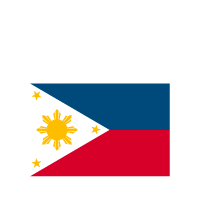IRCC provides more clarity on eligibility criteria for six new PR pathways in Canada. This guideline is how IRCC staff assess applications from international students and essential workers submitted under the six PR streams.

IRCC provides more clarity on eligibility criteria for six new PR pathways in Canada. This guideline is how IRCC staff assess applications from international students and essential workers submitted under the six PR streams.
Earlier on May 6, Immigration, Refugees and Citizenship Canada (IRCC) launched six new permanent residences (PR) streams for essential workers and international graduates.
At this time, the International Graduate stream reached its quota of 40,000 applications after 25 hours. However, Immigration Minister Marco Mendicino has stated IRCC is open to exploring adjusting the quotas under the various streams. The two English-speaking essential worker streams have had over 11,000 applications submitted. Combined, their quota is 50,000 applications. The three French-speaking streams have a much lower uptake; applicants have until November 6 to make their submissions to IRCC.
In the last article, we talked about all the applicants’ questions about this new PR pathway. In this one, you will know how IRCC staff assess applications from international students and essential workers submitted under the six PR streams.
These new guidelines update state that applicants must meet all of the following criteria to be approved under any of the six streams:
- Legal entry into Canada and status as a temporary resident
- Official language proficiency
- Current work experience
- Intent to reside outside of Quebec
- Qualifying work experience
- Education requirements
1. Legal entry into Canada and status as a temporary resident
All principal applicants must reside in Canada with valid temporary resident status (or be eligible to restore their status) and be physically present in Canada when the application for permanent residence is received and when the application is approved.
Foreign nationals who do not currently have temporary resident status in Canada, such as refugee claimants, are not eligible for this public policy.
2. Official language proficiency
The applicant must provide an original language test from a designated provider that shows the applicant meets the minimum language level in each of the 4 language skill areas for the stream to which they are applying. Essential workers need to demonstrate they have obtained a Canadian Language Benchmark score of at least 4 on a language test that is designated by IRCC. International graduates need a score of at least 5. Test options are:
English
IELTS: International English Language Testing System (General Training test only)
CELPIP: Canadian English Language Proficiency Index Program
French
TEF Canada: Test d’évaluation de français
TCF Canada: Test de connaissance du français (in French only)
3. Current work experience
Principal applicants must be currently working in order to be eligible for this public policy. Current employment
- must be in Canada
- can be in any occupation listed in the National Occupational Classification (NOC)
- must be authorized
- must be paid in wages or commission
- does not include self-employment, unless the applicant is working as a medical doctor in a fee-for-service arrangement with a health authority
- The lock-in date to determine “currently employed” is the date the application is received by IRCC.
There are no requirements that the current employment is full-time or permanent. Applicants do not need to remain employed throughout the processing of the application. When determining whether an applicant was an employee or self-employed, IRCC officers will consider factors such as:
- the autonomy the worker had such as how much control they had over what type of work was performed and when it was performed
- whether the worker owns or is providing tools necessary to complete the work
- the extent to which the worker needs to perform the work personally and whether they can subcontract or hire additional help to complete the work
- if there is financial risk assumed by the worker
- other relevant details such as written contracts
Get your Study Permit and Work Permit with Admission Hub
Trusted by 3000+ students from over 29 countries| 3 ICCRC immigration consultants | Highly Experienced Team | 35 Team Members
4. Intent to reside outside of Quebec
The six programs are available to applicants who intend to reside anywhere in Canada outside the province of Quebec.
Processing offices must follow procedural fairness guidelines if they are not satisfied that an applicant meets the criteria of the Temporary Resident to Permanent Resident Pathway. In such cases, the officer must inform the applicant of their concerns, and the applicant must have the opportunity to respond and provide additional information in support of their application.
5. Qualifying work experience
Essential workers must meet the following criteria:
- have gained work experience in an eligible National Occupation Classification (NOC) code of at least 1,560 hours in the three years before the application has been submitted
- the applicant must have been authorized to work in Canada
- the work occurred in Canada
- wages or commission were paid
- the applicant must not have been self-employed unless they were a medical doctor being paid by a health authority

6. Education requirements
International graduates must meet the following requirements:
- The program of study was completed at a Canadian Designated Learning Institution (DLI)
- The applicant completed their program at a Canadian DLI no earlier than January 2017
- The applicant must have had a study permit while enrolled at the DLI
- The applicant received an eligible credential (e.g., a degree, diploma, certificate or attestation from a program leading to a job in a skilled trade)
- One or more credentials will be accepted if the combined study in Canada is equivalent to a 2-year credential (at least 16 months in duration)
Students who studied at a Canadian PGWP-eligible DLI from abroad without in-Canada study authorization are also eligible for this public policy.
Get your Study Permit at Canadian Public College with Admission Hub
Trusted by 3000+ students from over 29 countries| 3 ICCRC immigration consultants | Highly Experienced Team | 35 Team Members



















